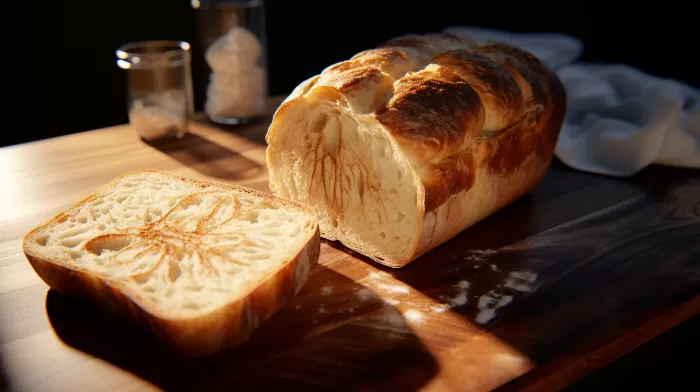Are you one of those people who suffers from digestive problems after eating bread and other foods made from grains like wheat, rye, or barley? If yes, then your bones may be in danger, and it’s crucial to consider changing your diet immediately. You may be suffering from celiac disease, an autoimmune sensitivity to gluten, which is known to result in chronic damage to the small intestine and can lead to a greater risk of broken hip or other bone fractures.
The Celiac Disease – Bone Fracture Connection
Celiac disease affects nearly 1 in 100 people worldwide. When someone with celiac disease consumes gluten, the body triggers an immune response that attacks the small intestine causing various digestive symptoms, along with long-term damage to the gut lining. Continuously consuming gluten when suffering from celiac disease leads to damage to the intestinal mucous membrane, which in turn interferes with the absorption of essential nutrients, including calcium, leading to weaker bones.
According to researchers at Karolinska University Hospital, Stockholm, sticking to a gluten-free diet allows the mucous membrane – the moist tissue lining the small intestine – to heal, which in turn lowers the risk of complications such as bone fractures. They conducted a study, tracking over 7,000 people diagnosed with celiac disease for about a decade. They found that those with persistent tissue damage were more likely to suffer a broken hip five years after the follow-up biopsy. This clearly indicates the direct connection between consistent gluten consumption, persistent intestinal damage, and an increasing risk of bone fractures.
Identifying & Managing Celiac Disease
If you experience digestive symptoms after consuming gluten-rich foods such as bread, pasta, or cereals, it’s essential to consult your healthcare provider or gastroenterologist to get tested for celiac disease. A simple blood test can help determine the presence of certain antibodies related to celiac disease, which can be followed by an endoscopic biopsy to confirm the diagnosis.
Once diagnosed with celiac disease, strictly adhering to a gluten-free diet is critical to managing the condition. Eliminating gluten-containing grains and products made from them is crucial to prevent further damage to your intestinal lining and lower the risk of complications like bone fractures.
Ensuring A Balanced Gluten-Free Diet
Transitioning to a gluten-free diet may seem daunting at first, but with an increasing number of gluten-free product options in the market, it has become more manageable than ever. Here are some tips to maintain a balanced and nutritious gluten-free diet:
- Consume naturally gluten-free foods: Emphasize whole, natural foods such as fruits, vegetables, meat, fish, poultry, eggs, nuts, seeds, legumes, and dairy that are naturally gluten-free.
- Choose gluten-free alternatives: Opt for gluten-free grains and grain products like rice, corn, quinoa, amaranth, buckwheat, millet, and oats (certified gluten-free, as some brands contain traces of gluten).
- Read labels: Carefully read the ingredient labels when purchasing store-bought packaged foods to ensure they are gluten-free. Also, look for the “Certified gluten-free” label.
- Avoid cross-contamination: Keep separate utensils, toasters, cutting boards, and storage containers for gluten-free foods to prevent cross-contamination.
- Focus on nutrient-rich foods: As people with celiac disease may have difficulty absorbing nutrients, it’s essential to include nutrient-rich foods like leafy greens, beans, lentils, fish, and lean meats in your diet.
In conclusion, if you’re diagnosed with celiac disease, adopting a gluten-free diet is integral to preventing long-term health complications like bone fractures resulting from decreased calcium absorption and subsequent weakening of the skeletal structure. Being vigilant about the foods you consume and maintaining a balanced, nutrient-rich gluten-free diet will not only help heal the damage to your gut lining but also significantly improve your overall health and well-being.



